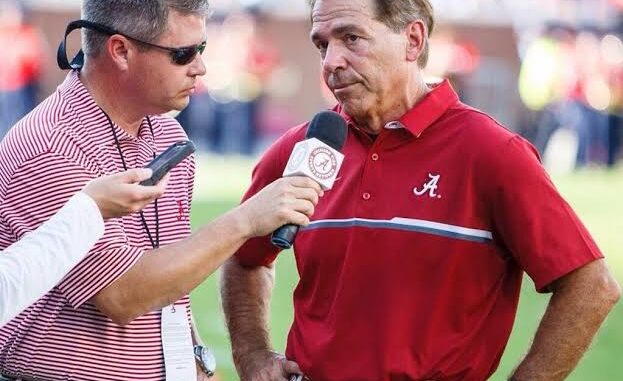
Alabama radio host Chris Stewart was suspended indefinitely after making controversial comments regarding the University of Tennessee’s football program. During a segment on his show, Stewart accused the Volunteers of engaging in unethical practices in recruiting and player management. His allegations suggested that Tennessee was not playing by the rules and was gaining an unfair advantage over competitors.
The remarks ignited a firestorm on social media and among sports commentators. Fans and players alike reacted strongly, with many defending Tennessee and calling for accountability from Stewart. Critics argued that his statements were baseless and potentially damaging to the reputation of a respected program. In response to the backlash, the station decided to suspend Stewart pending a review of the situation.
Stewart’s accusations centered on claims of improper benefits and violations of NCAA regulations. He cited anecdotal evidence and comparisons to other programs, suggesting a pattern of misconduct. However, these claims lacked substantiated proof, leading many to view them as reckless speculation. In a landscape where college athletics are under increasing scrutiny, such accusations can have serious ramifications for teams and their coaches.
The fallout from Stewart’s comments highlights the broader issue of accountability in sports media. Commentators wield significant influence, and when they make allegations without solid evidence, it can lead to reputational harm. In an era where the integrity of college sports is often questioned, hosts like Stewart have a responsibility to ensure their commentary is well-founded.
Stewart’s suspension also opens a dialogue about the ethical responsibilities of sports talk radio hosts. With many listeners relying on these platforms for accurate information, the need for careful reporting and fact-checking has never been more critical. The incident may prompt stations to revisit their policies on accountability and standards for on-air talent.
As of now, there is no set timeline for Stewart’s return, and the station has remained tight-lipped regarding further developments. This situation serves as a reminder of the delicate balance between free speech and responsible journalism in the world of sports commentary. The outcome could have lasting implications for Stewart’s career and the policies of sports radio in general, as it underscores the potential impact of unchecked commentary in a high-stakes environment like college athletics.
Leave a Reply